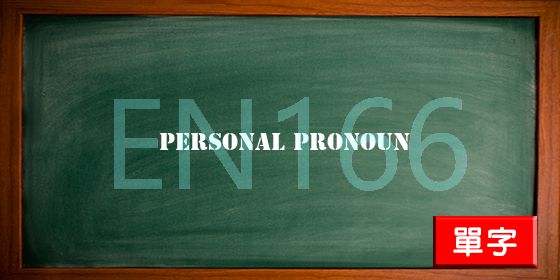personal pronoun 【語法】人稱代名詞。
【語法】人稱代名詞。 “personal“ 中文翻譯: adj. 1.個人的,私人的;一身的,自身的。 2.本人 ...“pronoun“ 中文翻譯: n. 【語法】代(名)詞。 a personal pro ...“indefinite personal pronoun“ 中文翻譯: 不定人稱代詞“pronoun“ 中文翻譯: n. 【語法】代(名)詞。 a personal pronoun 人稱代詞。 a reflexive pronoun 反身代詞〔myself 等〕。 “the pronoun“ 中文翻譯: 代詞“自己”“absolute pronoun“ 中文翻譯: 絕對代詞“anticipatory pronoun“ 中文翻譯: 引導代詞“clitic pronoun“ 中文翻譯: 接語代詞“coreferential pronoun“ 中文翻譯: 互參代詞“definite pronoun“ 中文翻譯: 定代詞“demonstrative pronoun“ 中文翻譯: 指示代詞“disjunctive pronoun“ 中文翻譯: 分離代詞“emphatic pronoun“ 中文翻譯: 強調勢代詞; 強勢代名詞“i (pronoun)“ 中文翻譯: 中文第一人稱“impersonal pronoun“ 中文翻譯: 無人稱代詞“indefinite pronoun“ 中文翻譯: 不定代詞“intensive pronoun“ 中文翻譯: 強勢代詞“interrogative pronoun“ 中文翻譯: 疑問代詞“possesive pronoun“ 中文翻譯: 物主代詞“possessive pronoun“ 中文翻譯: 【語法】物主代詞。 “pronoun conjunction“ 中文翻譯: 代連詞“pronoun review“ 中文翻譯: 代詞復習“reciprocal pronoun“ 中文翻譯: 【語法】相互代詞。 “reflexive pronoun“ 中文翻譯: 反身代詞“relative pronoun“ 中文翻譯: 關系代詞
In an effort to paraphrase more convincingly the reference principle of chinese persona ] pronoun in a sentence , this article discusses the reference relation of the chinese third person “ he “ in simple verbal structure from the sytax forms , and attempts to establish the concepot of “ direct governing “ and the reference principle of the personal pronoun in a sentence by combining the “ restriction principle “ , “ governing principle “ and “ center - word parameter “ 摘要本文主要從句法形式角度討論簡單動詞結構內第三人稱代詞“他”的所指關系,嘗試把“約束原則” 、 “統制原則”與“中心語參數”相結合,建立“直接統制”的概念和句內人稱代詞的所指規則,從而更有力地解釋漢語句內人稱代詞的所指規律。 |
|
Overworking the personal pronoun so that every sentence features the word “ i “ 濫用人稱代詞。以至在每個句子中都用“我”這個字。 |
|
In an effort to paraphrase more convincingly the reference principle of chinese persona ] pronoun in a sentence , this article discusses the reference relation of the chinese third person “ he “ in simple verbal structure from the sytax forms , and attempts to establish the concepot of “ direct governing “ and the reference principle of the personal pronoun in a sentence by combining the “ restriction principle “ , “ governing principle “ and “ center - word parameter “ 摘要本文主要從句法形式角度討論簡單動詞結構內第三人稱代詞“他”的所指關系,嘗試把“約束原則” 、 “統制原則”與“中心語參數”相結合,建立“直接統制”的概念和句內人稱代詞的所指規則,從而更有力地解釋漢語句內人稱代詞的所指規律。 |
|
Overworking the personal pronoun so that every sentence features the word “ i “ 濫用人稱代詞。以至在每個句子中都用“我”這個字。 |
|
personal property |
|
Then , with the water running off him , he got into an old smock and skirt that had belonged to his grandmother and bought a grammar of the bull s language to study but he could never learn a word of it except the first personal pronoun which he copied out big and got off by heart and if ever he went out for a walk he filled his pockets with chalk to write it up on what took his fancy , the side of a rock or a teahouse table or a bale of cotton or a corkfloat “此后, ”文森特先生曰, “哈利于當眾廷臣之面,將頭扎進牛之飲水槽,及至從水中伸出頭后,告以自己之新名142 。彼聽任水嘩嘩流淌,身著祖母所遺舊罩衫及裙子,并購一冊公牛語143語法書習之。然而只學會人稱代名詞,遂用大字抄錄,默記之,每當外出散步,衣袋中輒裝滿粉筆,在巖石邊沿茶館桌子棉花包或軟木浮子上胡亂涂寫。 |
|
The two different modes of thinking - the emphasis on subject consciousness in chinese and on the object one in english - have left clear marks in syntaxes in the two languages : personal pronouns are often used as subjects of the sentences in chinese while nonpersonal ones tend to be their counterparts in english ; active voice seems favorite in chinese structure while there is no such tendency in english 摘要漢語重主體、英語重客體的思維方式在句法中的表現為:在主語的使用方面,漢語傾向用人稱作主語,而英語更多地表現為用物稱作主語;在語態的使用方面,漢語多以主動態代替被動態,而英語則主動態、被動態兼而有之。 |
|
In an effort to paraphrase more convincingly the reference principle of chinese persona ] pronoun in a sentence , this article discusses the reference relation of the chinese third person “ he “ in simple verbal structure from the sytax forms , and attempts to establish the concepot of “ direct governing “ and the reference principle of the personal pronoun in a sentence by combining the “ restriction principle “ , “ governing principle “ and “ center - word parameter “ 摘要本文主要從句法形式角度討論簡單動詞結構內第三人稱代詞“他”的所指關系,嘗試把“約束原則” 、 “統制原則”與“中心語參數”相結合,建立“直接統制”的概念和句內人稱代詞的所指規則,從而更有力地解釋漢語句內人稱代詞的所指規律。 |
|
The paper proper seeks to research on this sub - system from pragmatic and cognitive perspectives and put modern chinese personal pronouns under a systematic and coherent explanation 從視角轉換和心理視域的角度對漢語的人稱代詞系統進行語用和認知方面的研究,可以把現代漢語人稱代詞的理解和使用置于統一的、系統的框架之中。 |
|
Leave out personal pronouns like “ i , ” “ my ” and “ me . ” saying , “ i performed ” this or “ i demonstrated ” that is redundant . who else would you be talking about if not yourself 省略諸如“我” 、 “我的”及“我” (賓格)之類的人稱代詞。 “我從事過”這個或“我表現出”那個顯得累贅。你的簡歷談的不是你難道還是別人? |
|
This paper focuses on the analysis of the morphological forms of personal pronouns in some mon - khmer languages . the main forms are flexion in the grammatical categories of person , number and gender 本文對現代孟高棉諸語人稱代詞的形式進行分析,指出了其形態變化的語法手段主要是語音屈折,有人稱、數、性等語法范疇。 |
|
This b part is a practical section for your personal pronoun ' s learning . your teacher will show you some interesting pictures , please try to describe them with your partner together 本次課程介紹在學習過了基本人稱代詞之后,會員將通過大量的課堂活動完成替換練習/自主造句表達意愿,以及根據特定的圖片做出描述 |
|
In the following exercise , put the verbs in brackets in the present simple , put in the missing possessive adjectives * , and put in the missing personal pronouns # 用括號內動詞的一般現在時填空,并在*處填上適當的物主代詞,在#處填上適當的人稱代詞. ) |
|
Personal pronouns rank as one of the important linguistic sub - systems in modern chinese , therefore playing a vital role in verbal communication 摘要現代漢語人稱代詞系統是一個重要的言語交際子系統,在言語交際中具有十分重要的作用。 |
|
A discussion on the question whether the first personal pronouns of the west zhou language have the function of modesty and respect 論西周漢語第一人稱代詞有無謙敬功能的問題 |
|
Personal pronouns in lyric discourse - a corpus - based contrast between english and chinese 英語語篇中第三人稱代詞回指的先行語狀態變化的多視角考察 |
|
On the original usage and flexible usage of the third personal pronoun in the western zhou chinese language 論西周漢語第三人稱代詞的本用和活用 |
|
On the differences of the second personal pronouns in form and meaning in regional japanese dialects 西周漢語第一人稱代詞的語音和語源問題 |
|
Subjective personal pronouns act as subjects or subject complements in sentences 主格人稱代名詞擔任句子里面的主語或主語的補語。 |
|
Overworking the personal pronoun so that every sentence features the word “ i “ 濫用人稱代詞。以至在每個句子中都用“我”這個字。 |

